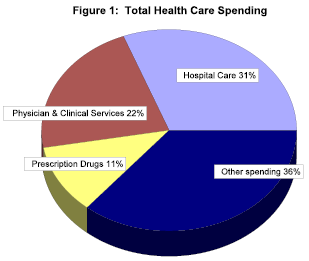According to the US Food and Drug Administration (FDA), a generic drug is a medication that is identical, or bioequivalent, to a brand name drug in dosage structure, safety, strength, route of administration, quality, performance characteristics and intended use. In other words, while generic drugs are chemically similar to the original patented medicine, they are often sold for far less. Statistics show that generic drugs save consumers an estimated 8 to 10 billion USD a year at retail pharmacies. The FDA touts generics as the way to go in the provision of qualitative yet affordable medicines to the consuming public.
https://www.minds.com/blog/view/812928478460022784

EXECUTIVE SUMMARY
Health care is a vital service that daily touches the lives of millions of Americans at significant and vulnerable times: birth, illness, and death. In recent decades, technology, pharmaceuticals, and know-how have substantially improved how care is delivered and the prospects for recovery. American markets for innovation in pharmaceuticals and medical devices are second to none. The miracles of modern medicine have become almost commonplace. At its best, American health care is the best in the world.Notwithstanding these extraordinary achievements, the cost, quality, and accessibility of American health care have become major legislative and policy issues. Substantial increases in the cost of health care have placed considerable stress on federal, state, and household budgets, as well as the employment-based health insurance system. Health care quality varies widely, even after controlling for cost, source of payment, and patient preferences. Many Americans lack health insurance coverage at some point during any given year. The costs of providing uncompensated care are a substantial burden for many health care providers, other consumers, and tax payers.
This Report examines the role of competition in addressing these challenges. The proper role of competition in health care markets has long been debated. For much of our history, federal and state regulators, judges, and academic commentators saw health care as a "special" good to which normal economic forces did not apply. Skepticism about the role of competition in health care continues.
https://www.justice.gov/atr/executive-summary
No comments:
Post a Comment